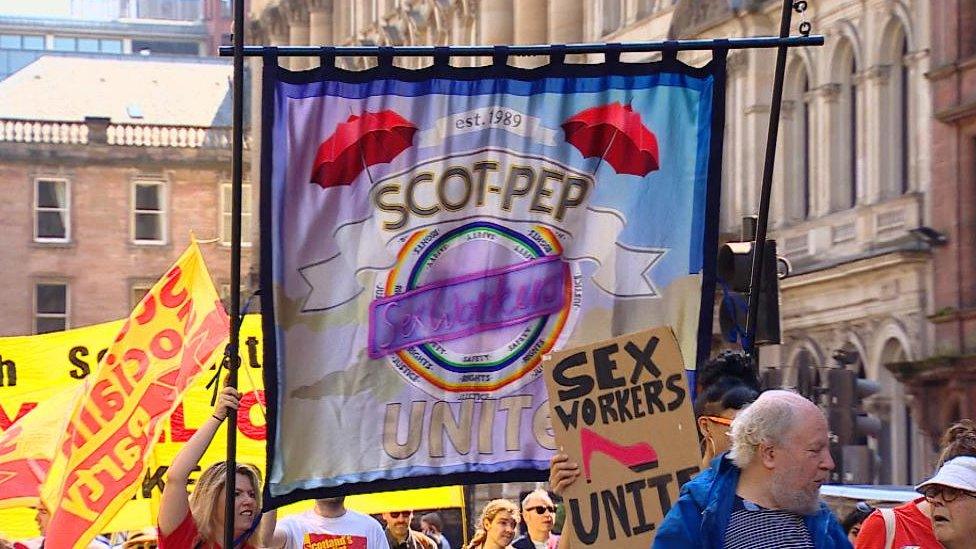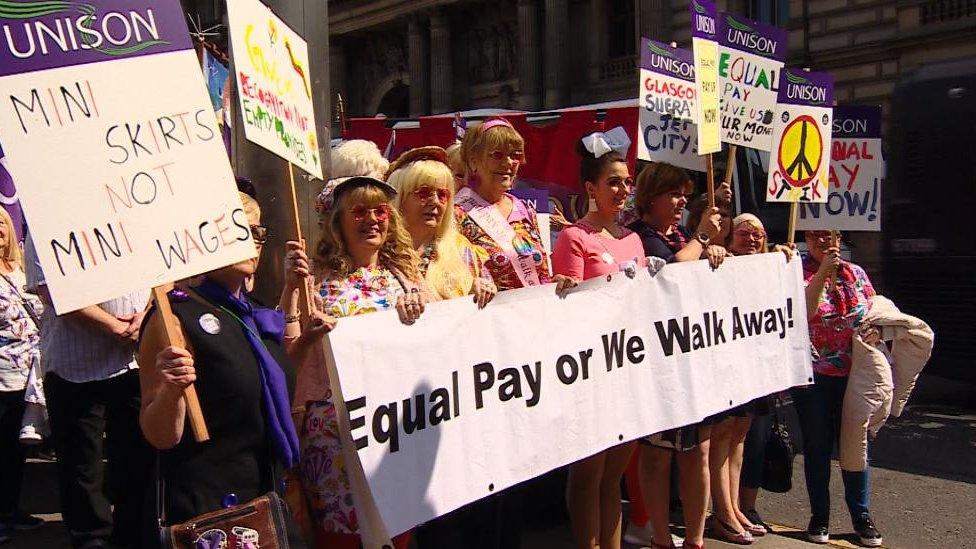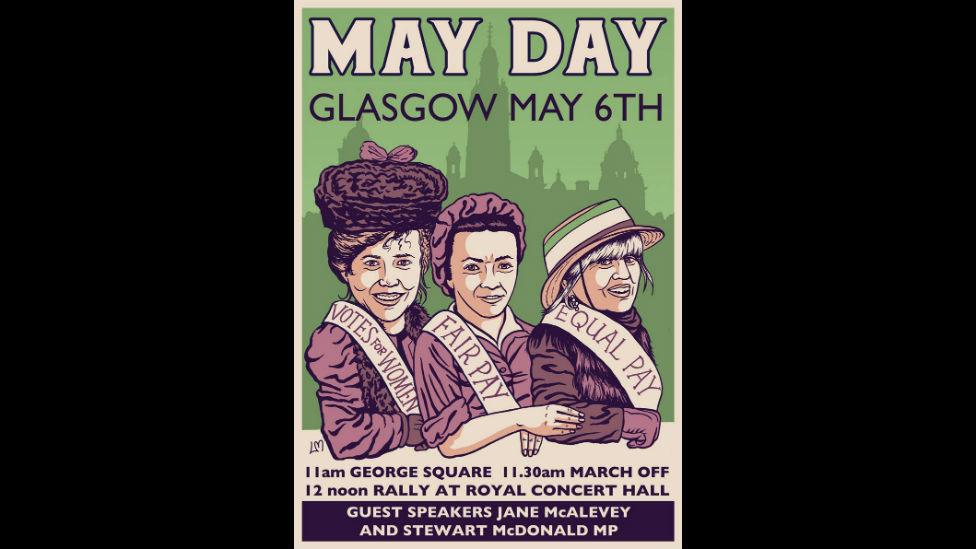Sex workers join Glasgow May Day march
- Published

Sex workers took part in the May Day march event in Glasgow
A group of sex workers have taken part in the May Day march in Glasgow for the first time.
Campaigners from the charity Scot-Pep and the Sex Worker Advocacy and Resistance Movement attended the event.
The protest is part of efforts to decriminalise sex work and to win better protection against deportation for migrant sex workers.
The May Day march on Sunday was led by members of the Glasgow Equal Pay Campaign.
With this year marking the 100th anniversary of women being given the right to vote, the focus was on equality.

Members of the Glasgow Equal Pay Campaign were dressed in the style of the women workers at Ford's Dagenham plant
The sex workers taking part were also be highlighting the problem of violence against those working in the industry.
Scot-Pep tweeted afterwards: "So many good reactions today - someone came up to us and said 'I've been part of the trade union movement for decades, good on you for being being here!"'
Speaking ahead of the demonstration, sex worker Harley said: "I've never been a part of a workers' movement before, but I think it is vital for sex workers to be visible in places like this.
"Too often we are talked down to and made to feel like our struggles are not welcome in the workers' rights movement, we're here to say that we can speak for ourselves and no longer be spoken for. We demand workers' rights."
Fellow sex worker Molly added: "It's important for sex workers to be here on this iconic day for workers of all sorts. We are so often overlooked by the trade union movement, which in the past has even supported the continued criminalisation of our workplaces.
"Ironically, criminalisation makes us very vulnerable to workplace exploitation and abuse. We're here demanding labour rights and solidarity, not criminalisation and poverty."

The Glasgow May Day poster was designed by Lorna Miller
Members of the Glasgow Equal Pay Campaign took part in the march dressed in the style of the women workers at Ford's Dagenham plant, who campaigned on the issue in 1968.
The 2018 May Day poster was designed by artist Lorna Miller, who combined three generations of Glasgow campaigners.
Mary McArthur was a suffragette who founded the women's trade union league, Agnes McLean was union convenor at Rolls Royce in Hillingdon and led strikes for equal pay, and Denise Phillips is a home carer and part of the current Glasgow City Council collective dispute.
Jennifer McCarey, chairwoman of Glasgow Trades Council, said that 50 years since the strike at Dagenham "Glasgow is currently at the forefront of Scotland's largest equal pay battle".
"Our May Day celebrations will be led by these campaigners," she added.
The annual protest and celebration of rights is part of International Workers Day, which takes place on May Day each year.